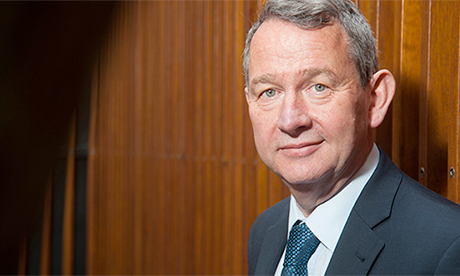One of the 11 members of the Catholic Church’s Truth, Justice and Healing Council (TJHC) has delivered a sharp and wide-ranging criticism of the Royal Commission into child sexual abuse, describing it as “a flawed body” and its final report “a flawed document”.
On the day that the Australian Catholic Bishops Conference and Catholic Religious Australia formally responded to the Royal Commission’s final report, comments by Australian Catholic University Vice-Chancellor Professor Greg Craven are contained in the simultaneously released four-volume final report from the TJHC.
“I am deeply concerned that the Royal Commission largely lost sight of the goal of restorative justice in both its hearings and its report,” Prof Craven wrote, describing his contribution to the report as “an avowedly personal account”.
He was the only council member not to endorse the final TJHC report, which, from its introduction, accepts that “the Royal Commission has laid bare the extensive history of the Church in the sexual abuse of children in its institutions and of the devastating failure of the Church to put the interests and the protection of children and vulnerable people first”.
“An almost inevitable conclusion is that too many of those who were in a position to protect children instead looked to the preservation of the reputation of the organisation and thus to the shielding of perpetrators,” the report said.
“The lives of victims and of their families and loved ones have been devastated by the effects of clerical sexual abuse and that must be, and remain, at the forefront of the Church’s thinking and actions as it tries to come to grips with the tragedy and to deliver justice to those who have been harmed while in its care.”
However Prof Craven’s criticism is largely levelled at the way the Royal Commission was conducted and its focus on churches, particularly the Catholic Church.
“This was a lawyers’ Royal Commission, and its overwhelming reliance on changes to civil litigation and raw compensation reveals the narrow obsession of lawyers with crude monetary solutions,” Prof Craven wrote.
“I am deeply concerned for the future of victims with life-long mental health issues, which cannot be addressed simply through the once-off award of damages or redress.”
“I am deeply concerned that the Royal Commission largely lost sight of the goal of restorative justice in both its hearings and its report.”
Prof Craven criticised the Royal Commission report for “its reliance upon ill-defined concepts like ‘clericalism’ as a short-hand charge sheet that can be deployed to substantiate virtually any accusation or ground any negative finding”.
“Similarly, the Royal Commission proved itself overwhelmingly ready to draw links between child abuse and such practices as celibacy by processes of reasoning that were tendentious and unconvincing,” he wrote.
Tempering his criticism, Prof Craven described his own witness of the Royal Commission and the work of the council.
“… No experience will ever surpass the realisation of the extent of the horror that had been perpetrated within my Church and upon its members,” he said.
“The extent of abuse, and the numbers of perpetrators, and the failure of authority was – almost – beyond belief.
“Yet alongside this awful reality was an appreciation that for many long-term critics of the Catholic Church, all this was as much an opportunity as a tragedy. You Catholics, they said, are nothing but child-abusers.
“For me, this is abuse of the abused. Who were the victims of Catholic sexual abuse but other Catholics? These victims are – or were – people I know, I like, I love.
“As a Catholic, I do not hang my head in shame. I share in some small way the enormous anger of victims toward those who perverted their part of the mission of our Church.” Continue reading
- Professor Greg Craven is Vice-Chancellor of the Australian Catholic University
- Image: Catholic Leader
